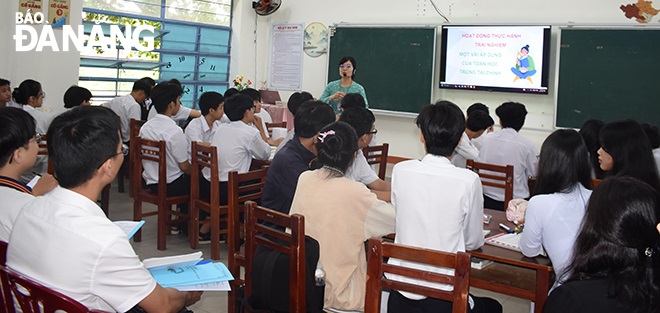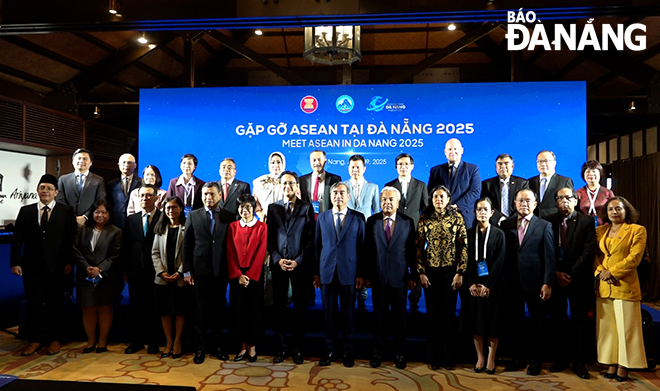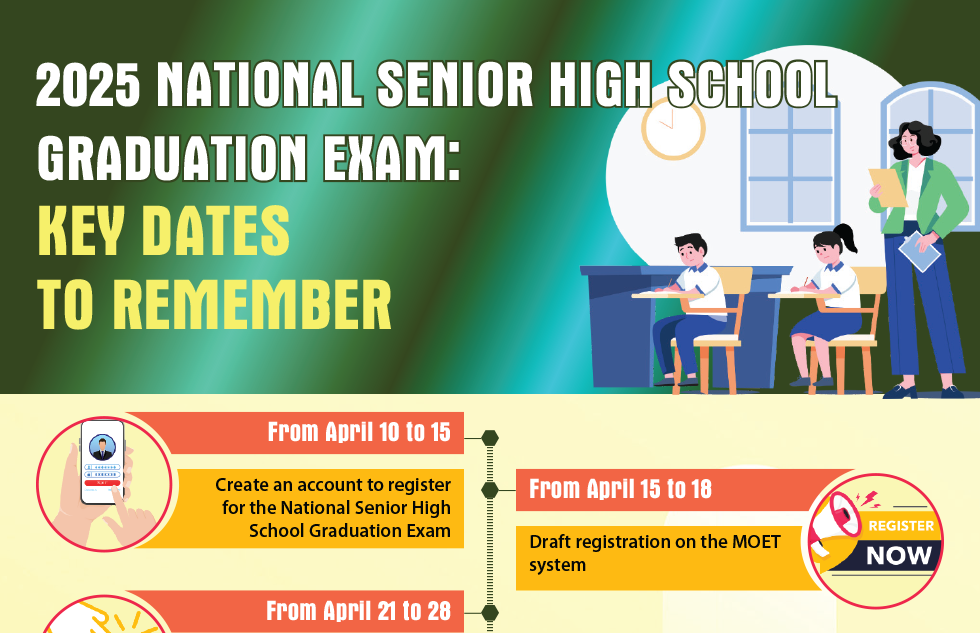Pupils enthusiastic about applied mathematics
In early November, the Thanh Khe Senior High School held a thematic session titled “Financial Management Skills for Pupils Through Experiential Practice: Applications of Mathematics in Finance”. The lesson was vibrant and engaging, with a variety of interactive activities that captivated student participation.
 |
| The Maths lesson |
Throughout the session, pupils took on dual roles as both participants and designers, organising their own activities. This hands-on learning approach encouraged them to explore and retain knowledge independently, helping them recognise their strengths and abilities while building essential skills for future employment and responsible citizenship. The lively and meaningful lesson left pupils feeling energised, with smiles and enthusiasm lighting up the room.
In this interactive environment, pupils were divided into groups and given task sheets with assignments to complete. A highlight of the session was the opportunity for pupils to act as “bank employees,” advising on profitable money management by calculating interest rates over various deposit periods, using a sample applied mathematics problem. The lesson also integrated “soft skills” into the applied mathematics curriculum, transforming what could be a dry subject into a dynamic and engaging experience.
Doan Dai Vy, an 11th-grade pupil at the Thanh Khe Senior High School, shared: “The 11th-grade Maths content is quite accessible for me. Previously, in junior high school, we would just attend classes, listen to teachers’ explanations, and complete exercises in class and at home. Now, this new approach, with the introduction and application of math problems, is the most engaging part as we get to apply it to real life. Today, we even had our first experience as ‘bank employees.’ It was new to us but made the lesson enjoyable.”
According to Mr. Dang Pham Phu An, a Maths teacher at UK Junior and Senior High School, the lesson shifted the focus from the teacher to the pupils. Through practical exercises, I could see the teachers’ dedication in linking theory to reality. Pupils not only gained new knowledge but also applied it to their lives. Additionally, the activities encouraged self-discipline, teamwork, and student engagement, helping them develop skills in mathematical communication, creativity, problem-solving, modelling, logical thinking, and reasoning.
Integrating experiential activities into subjects, especially mathematics, represents an innovative approach to teaching. When pupils engage in experiential learning under a teacher’s guidance, they participate directly in practical activities, enabling them to uncover knowledge and apply it to real-life situations.
Teacher Nguyen Duy Khanh remarked: “This lesson on financial management skills through experiential practice, using mathematical applications in finance, is an effective way to connect mathematical knowledge to real life. It sparks pupils’ enthusiasm, makes them more passionate about mathematics, and enhances the quality of teaching the subject.”
The reformed 2018 curriculum emphasises practical applications and real-life relevance, with each subject contributing to pupils’ character development. All skills and knowledge gained in mathematics have real-world applications, essential for future career success.
Mathematics is intrinsically linked to real-world applications and has broad relevance across science, technology, production, and daily life. With its unique role, mathematics is indispensable in all scientific fields, contributing to a more modern and civilised society. Consequently, fostering pupils' ability to apply mathematical knowledge in real life is essential for societal progress and aligns with the objectives of mathematics education.
Reporting by QUOC TOAN - Translating by TRUC VY, T.TUNG








